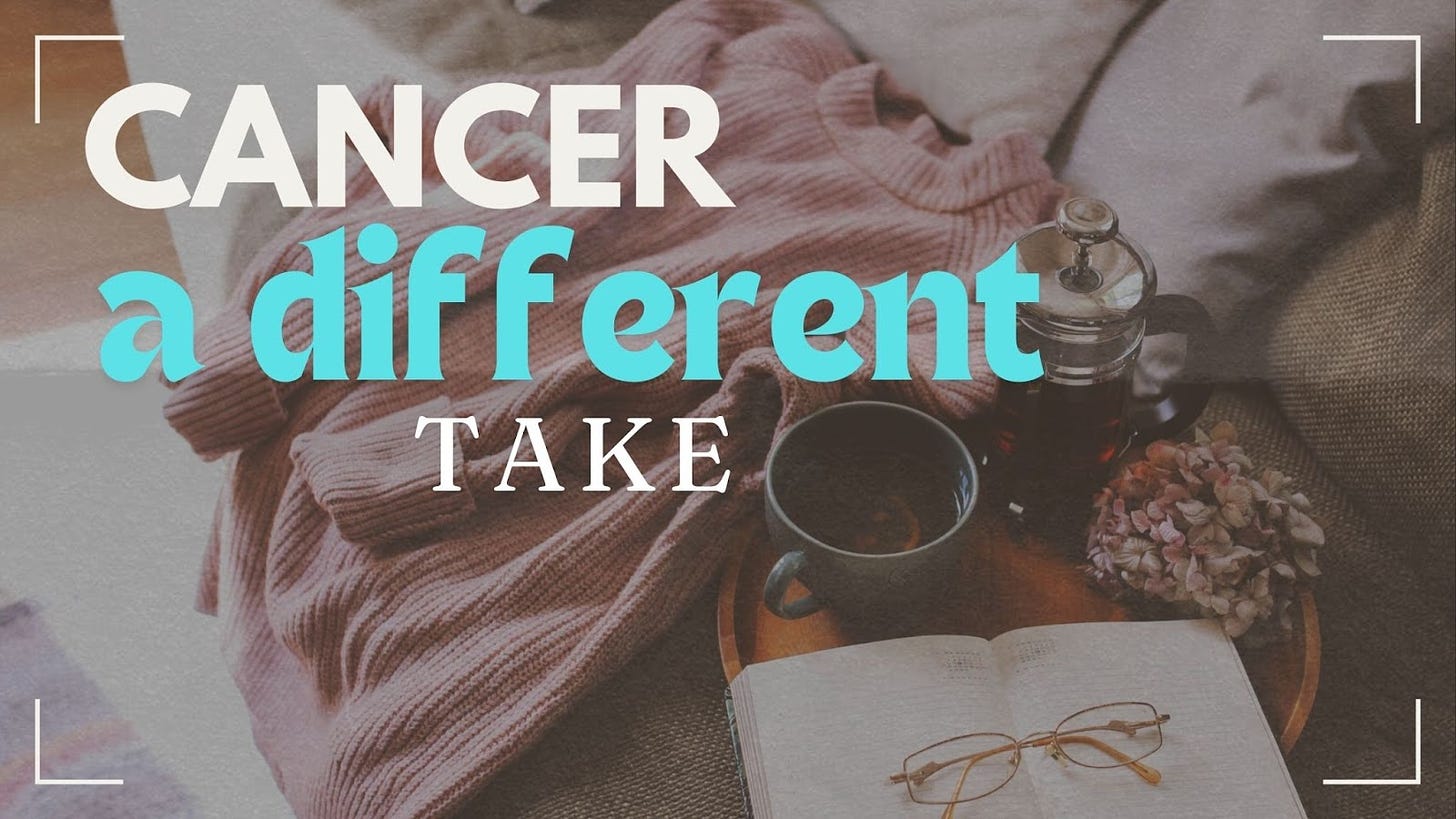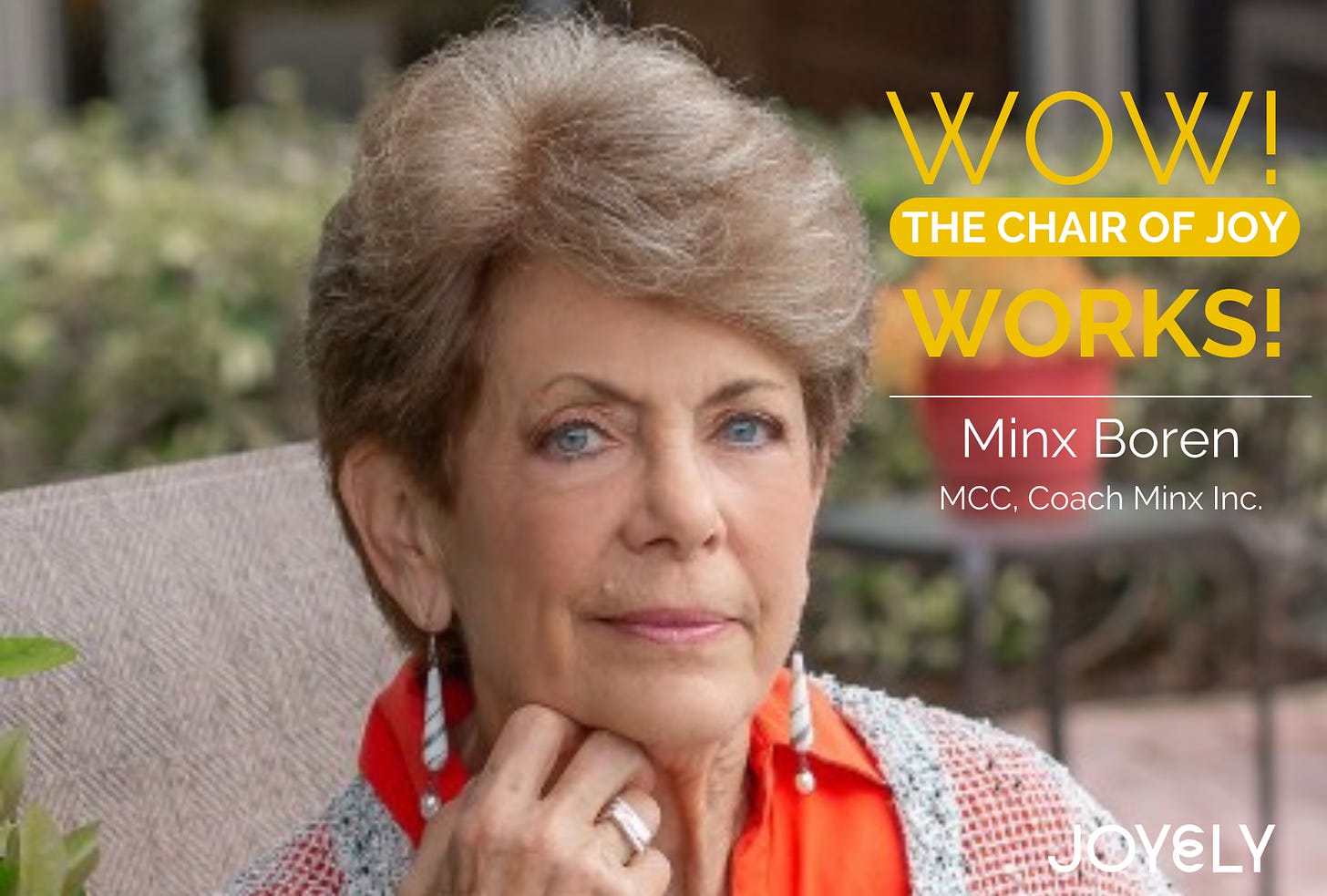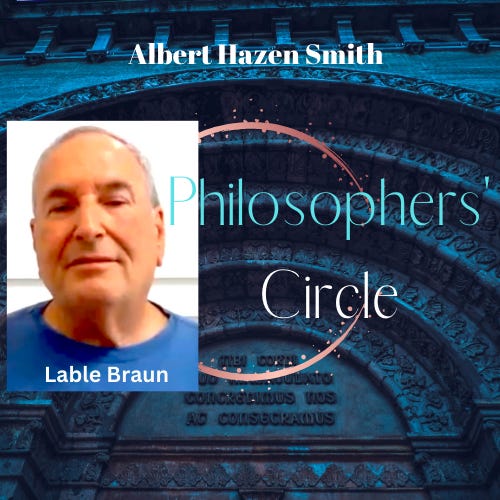Reflections in Real Time: Cancer
I put two fascinating people together for a recorded conversation who have lived and are living through an experience of cancer.
This is an excerpt from a moving recorded conversation between author and poet Minx Boren and author and philosopher Lable Braun.

What is Cancer to your life? That’s the question:
Minx Boren:
Interesting question. Thank you. The first word that comes up is journey. It’s not a definitive point in time. In my languaging of it, I never say that I have cancer. I say that I am dealing with cancer in my body. So I own it in a different way. And I think that language is very important.
What has it meant to me? What has it been about for me? This journey started. I was diagnosed four years ago in the middle of COVID. There were all kinds of extra stresses because of that. And my first question to myself was not why me, because why not me? part of the human condition and goodness knows there are reasons or theories of reasons as to why someone might develop cancer.
My only question, well, my first question was, how do I want to show up?
And as I asked myself that question, the little voice in my head said, you already wrote the book on it. Just follow your own advice. I had written a book called Decades of Gratitude, Gusto, Grit, and Grace, which are coach stories, coach stories about my own life. And those four elements showed up everywhere.
what they became for me for the last four years between the original diagnosis and then a recent diagnosis six months ago that it had metastasized. The question became how do I show up with gratitude for everything that comes my way every day, the blessings that are always there? Gusto, a certain level of enthusiasm rather than just wallowing in it

.
Grit because you need a lot of it to go through a cancer journey and grace in the sense of showing up as graciously and gracefully as I can. There is a certain sense of grace that there was something larger than me, that I am connected with, and that I am not making this journey alone.
Lable Braun:
Well, part of what cancer in my life is discovering what the deepest connections in my life have been. Minx, I love the phrase, you constantly use:” journey mates.” And there are friends and there are journey mates, people who are deeply intertwined on each other’s journey. I believe I got the cancer first.
And you were there for me and then you got the cancer and I was there for you. But I couldn’t imagine making this journey without significant people in my life. And that includes you, Phyllis. I mean, the support you’ve given me has been so important. But the question then also comes up, what do I do now?
That was my first inkling. What is gonna be the shape of my journey with cancer? And part of what I had to do was to figure out who am I living for?
And what I realized was there are people who love me and who I love.
And that was staying around for as long as possible. But to shape that journey, I had to also let the people I know that I love, that I am going to try to stay around as long as possible, short of subjecting
my mind, body, or spirit to torture.
And that’s been a real foundation stone for me in that. I suppose I was going to look at what was really important to me, how has cancer affected me. In that case, it’s given me a fierce determination, fiercer than I’ve had before to remain Lable Braun throughout this whole experience. And it turns out, is not an easy task when you’re dealing with something like this.
Phyllis:
Well, why not? I mean, what gets in the way of being Lable Braun in the cancer experience?
Lable Braun:
First of all, it’s other people’s perception of you. I don’t talk much about my cancer. I’m glad to do it here, but I don’t because it lends itself to me being seen as the loved one with cancer.
That’s not who I’ve been for most of my life. And I want to remain who I’ve been.
I want to be that person who is present at the moment as the full me. And I also don’t want to deal with pity. That has never been something that’s been high on my list. I don’t think it’s useful.
Dealing with this journey in the way that I deal with it. I have never been a fan of the militaristic language we use when dealing with events like this:
“ You’ve got to fight the cancer. You’ve got to conquer the cancer. The cancer’s going down. You got this.
I prefer when there are things in my life that come up that need my dealing with them to dance with it.
to see where it goes. Sometimes it leads, sometimes I lead, but what always remains is the dance. And that’s what to me is being labeled wrong throughout this entire experience.
Minx Boren:
So I want to jump in here because I’m sitting here nodding my head so vigorously that I think my screen is actually bumping up and down. Yes, exactly. I want to show up as me. I definitely don’t want pity. There are too often people find out or they hear via the grapevine and then they run into me and wring their hands. How are you? I just heard. I don’t want any of that.
I answer as honestly as I can in this moment: I am fine. Or: In this moment I’m facing a particular challenge and I’m managing it. That’s where I go with it. I hate the militaristic language and I love the idea of dancing with it. Whatever that means in the moment to go back to what you were saying about wanting to show up as yourself.
I just had a conversation with my husband.
About 10 days ago because of the medications that I’m on, sometimes I’m exhausted. Sometimes I’m not as clear-minded as I would like to be. And we had a date with somebody and I really didn’t want to go. I was pushing really hard for his sake as much as anything else. And also to stay in the journeys, to stay doing what I can for as long as I can.
So I kind of pulled myself together and I got in the car and I was cranky. I was just cranky. I was tired. I wasn’t thinking straight. And in that moment,
I looked at him and I said,
“ I am doing everything I know to do to show up with the four G’s, gratitude, gusto, grace. And there are moments where I can’t access that part of me. I can’t get to my heart. I can’t get to my calm and centered self.
I’m just too tired. I’m just too foggy. And I need you to know that in the moment and remember that this is not all of who I am.”
And so I set that up as a context for us. And now there’s a shorthand to it when we’re going out. I will say to him in advance,”
I’m in a rough space right now. So you carry the conversation. I’ll jump in when I can at dinner.” And so he already knows upfront.
I may rally, lots of things can happen and my energy goes up, but at least if he knows, and then the people that I’m with know, when it drifts toward too much conversation about cancer, that’s really not an interesting conversation right now. I’ll answer what you need me to answer so that you’re comfortable, but basically in this moment I’m fine and what do you think about? And I’ll throw out another topic.
Lable Braun:
That is so you Minx. So you live life so honestly. And I wouldn’t have expected that cancer could change that. And I think something that you and I have in common is we listen to our bodies in different ways, but we listen to our bodies. We don’t try to force things on our bodies. We don’t try to do things that our body’s not ready to do.
We do things that our body is ready to do, whether our mind is ready to do them or not.
And it’s just a matter of,” I can’t do this right now.”
And to be able to say that and be heard is, think, the greatest gift of those who love us in our lives.
Minx Boren:
Yes. And what I find is that I need to be clear enough. It’s my responsibility to make the request. I cannot expect in any part of a marriage, right, or in any part of a relationship that someone’s reading my mind. And so it forces me. One of the gifts, if you want to use the word cancer, is that it forces me to be really clear and not assume that people know what’s going on in my brain.
because my brain’s always doing what it’s doing and running around in circles. But I need to be clear about what I want people to know so that we can be in our conversation in a way that’s meaningful and loving and all of that. And you and I do that all the time. Lable we get on the phone kind of with no agenda. And two hours later, it’s like, I think I need to go get a glass of water. You know, you’re talking about the assumptions that people make.
Lable Braun:
There’s a funny story with you and I, and you’ll know exactly which one I’m going for, which I think really points to this. I am deaf in my right ear, and Minx and I were at a conference together, and came time for dinner. And I especially can’t hear well when there’s a lot of ambient noise or a band playing right next to where we’re sitting.
At that time, you sat down next to me and I was really, really rude to you. I did not talk to you. I did not interact with you. I’m sure you thought I was the biggest jerk in the world, but you are also a very determined person. So the next year we’re at the same conference and you sit down next to me and we have a fantastic conversation.
And you say, well, what changed last year? I thought you weren’t interested in talking with me at all. And this year we’re having a great conversation. I thought back to the year before, last year you sat down on this side, this year you sat down on this side, and that made all the difference in the world. So I think that people have their own assumptions about how we’re dealing with cancer.
And cancer being almost a taboo subject in our society, they’re unwilling to engage and ask, you know, well, when you were really grumpy the other day, was it something I did, or was it that you weren’t feeling well? People don’t ask that. They just assumed that it was because of the cancer and not defined by my cancer. Sometimes I get grumpy just because I get grumpy, you know. So I wish that people would open up to freely ask. That’s the only antidote to the assumption paradox.
Phyllis:
What about the issue of mortality? There used to be a time when people said cancer and that meant the end of everything. Doesn’t mean that today, but still when it comes to you, you have to sort of deal with the question of your own mortality. So I’m curious as to how the two of you have handled the question of death.
Lable Braun:
It becomes important to understand the nature of the universe we live in. I think it was Joseph Campbell who once said, cannot live in concert with nature until you understand nature. And for me, one of the things that is deeply important to me is understanding that there were 13 .5 billion years, give or take 200 million, before I showed up in existence. And that I have no fear about the fact that once there was a time without me before I was born, why should I have any fear that there’ll be a time after that I won’t be here?

So, and as Mink said before, it helps me stay away from the “why me” thing because and we’ve had a conversation about the four elements of the universe that people are most uncomfortable with.
One of them is entropy. Things run down.
As Minx said, why not me? This is just part of the process. So for me, mortality has no meaning. It’s not a factor in any of the decisions I make except making sure that those who will be here after I’m here are well taken care of for the rest of their lifetimes.
Minx Boren:
So I’m going to do a “yes and” because when ever Lable speaks that way, I just want to go, yes, absolutely. And I’m going to take it to a closer look at my own life.
My mother died young. I’ve know way too many people who have died of cancer and have died young. So the first thing I wanted to be sure is that everybody who I knew, who has impacted my life, This is a big statement to make:
There is no one in my life that I love that doesn’t know I love them.
I’ve been sending cards to people just because I moved to do that. I want people to know who they have been in my life as journey mates. I don’t have any regrets. It’s not that there are things that, I wish I had done it that way or tried this or taken an extra trip to Europe or whatever it is. But I don’t count them as regrets.
I look at the absolute richness and blessings of my life. I have been writing down what I am grateful for ever since I took Martin Seligman’s course 20 years ago, which he did for coaches. Every night you write down three blessings, three good things, three things you’re grateful for. So I’ve been doing that for 20 years. And you’re not allowed to just write, I’m grateful for my son. I’m grateful for my son every day in my life, but today it’s because he called right when I needed to hear his voice. So it’s always very specific. So I have lived in this central place of gratitude as a core. And it changes everything when I look at my life from that perspective, I have gotten to do so much. I have gotten to be so much. I have gotten to share with so many people that I’m not regretful in any way.
Yes, would I like to do it for 10 more years? Of course, sign me on. And if I don’t, I leave the planet or this part of my existence. I don’t know what the next part of my existence is without clinging or without having to say a thousand I’m sorries. I don’t think there’s anybody in my life that I know that I need to say I’m sorry to or clear something up that I haven’t done already. Does that make sense?
Lable Braun:
I think it makes a lot of sense. And I think it’s something you don’t just turn on when you find you get a diagnosis that puts your life in jeopardy. It comes from how you live your life.
And then just carrying that through to this next stage. I think that
if we want to prepare for death, it’s not an exam that we start studying for the night before.
Ask yourself what in your life you wish was different about how you are being and how you are showing up in the world and start working on it now.
There are no guarantees in life. You don’t know that you’re going to get another chance to do it. Do it now!
Watch and listen to the whole conversation. The feedback has been wonderful.
Phyllis Haynes
Phyllis Haynes, Producer Haynes Media Works, Writer, Speaker Producer and Host, Profonde.TV, Princeton Television Producer, Possible Futures. She is a 25-year on-air broadcast veteran in network news and public affairs reporting. She served as the host of "Straight Talk" for WOR-TV and reported on major issues for ABC Evening News with Peter Jennings and the number one morning show Good Morning America. She received awards for her original independent documentary work. The Daily News heralded her independent production of Aids: The Facts of Life featuring Susan Sarandon as a great learning tool. Her documentary received an award from the American Film Institute and Billboard magazine.

